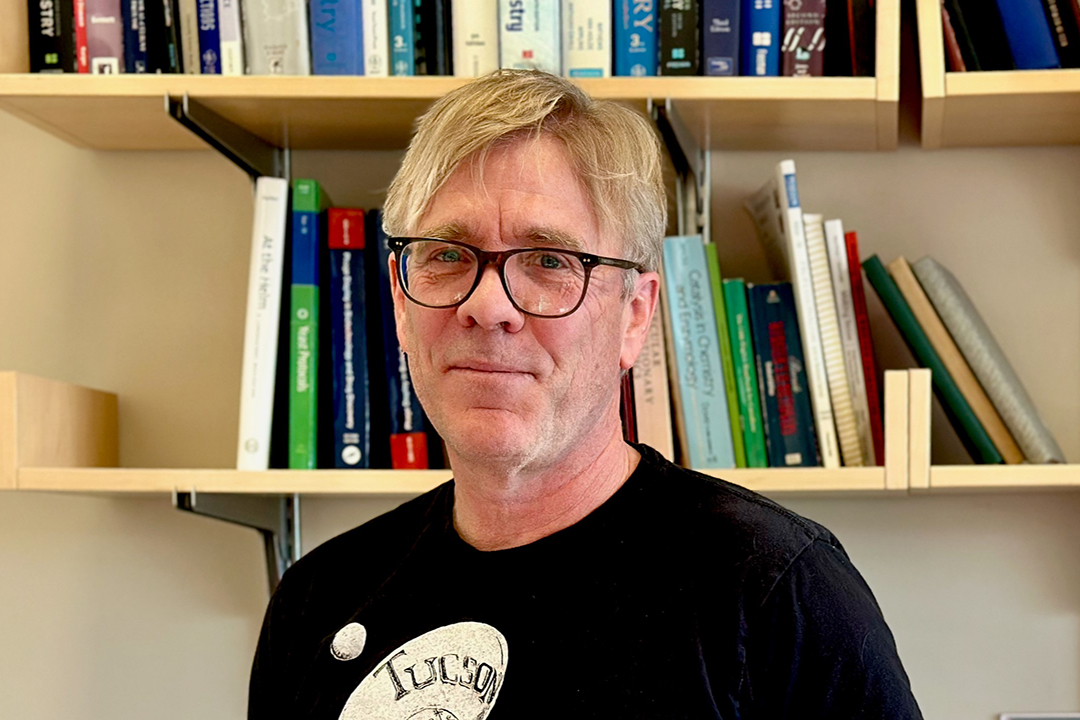
Support needed for Phase 2 trials of life-changing Alzheimer’s treatment
In Saskatchewan, providing care for Alzheimer’s disease and related dementia costs nearly $1 billion annually. Now a new treatment could reduce that cost and provide hope to the 18,000 individuals living with the disease.
“It’s a story that’s easy to tell. It’s a good story,” Dr. Ron Geyer (PhD) says in reference to a potentially revolutionary treatment for early-stage Alzheimer’s disease. The treatment, known as NeuroEPO, showed very promising results in the first round of human trials, leading to plans for Phase 2 clinical trials to be conducted at the University of Saskatchewan (USask).
After a promising first round of trials, the team is preparing for the next phase by selecting trial patients and securing funding. Fundraising can be a significant barrier for clinical trials, even for something as potentially transformative as NeuroEPO.
“This team is inventing tools that we can use for diagnostics and treatment—I always tell people that I’m an inventor, not a scientist,” says Geyer. “We develop biologic therapeutics, and our specialty is antibodies and recombinant proteins. They have multiple applications, including neurodegenerative diseases.”
While there are a number of potential uses for the tools Geyer and his team are working on, treating Alzheimer’s disease is the current focus.
“This is an application that’s in dire need of a therapy. There’s no therapy on the market—there’s no cure for Alzheimer’s. The drugs that are available here have limited, short-term efficacy. They work for about three months, and then people resume cognitive decline.”
In contrast to existing drug treatments, NeuroEPO demonstrates more consistent and longer-lasting results. During the first round of human trials, 82 percent of participants receiving the new treatment experienced stabilization in their cognitive function, and more than half actually experienced an increase in their cognitive function.
Securing funding for the Phase 2 trial would ultimately have benefits for everyone in Saskatchewan, where the provincial cost of Alzheimer’s care is currently almost $1 billion and estimated to reach $6 billion a year by 2038.
“I think it would be difficult to find somebody whose life hasn’t been touched by Alzheimer’s,” stresses Geyer.
In Saskatchewan, it’s estimated that there are approximately 18,000 people living with Alzheimer’s disease and another 20,000 people in caregiver roles. In addition to offering effective treatment to people who have been diagnosed with Alzheimer’s disease, NeuroEPO could be life-changing for their caregivers.
Geyer draws attention to another important aspect of a successful trial: improved access to diagnostic tools. Conducting the study at USask means that the research team can collaborate with other teams at the Sylvia Fedoruk Canadian Centre for Nuclear Innovation to employ best practice tools such as PET imaging and MRI measurements of brain volume.
“Using these tools can provide accurate early diagnosis and get patients onto a treatment plan before they find themselves in the hospital for other reasons,” Geyer concludes.
It’s a good story in the making, but additional support is required to make it real. To find out more about the Phase 2 trial or contribute to this life-changing research, contact Advancement at the College of Medicine.
